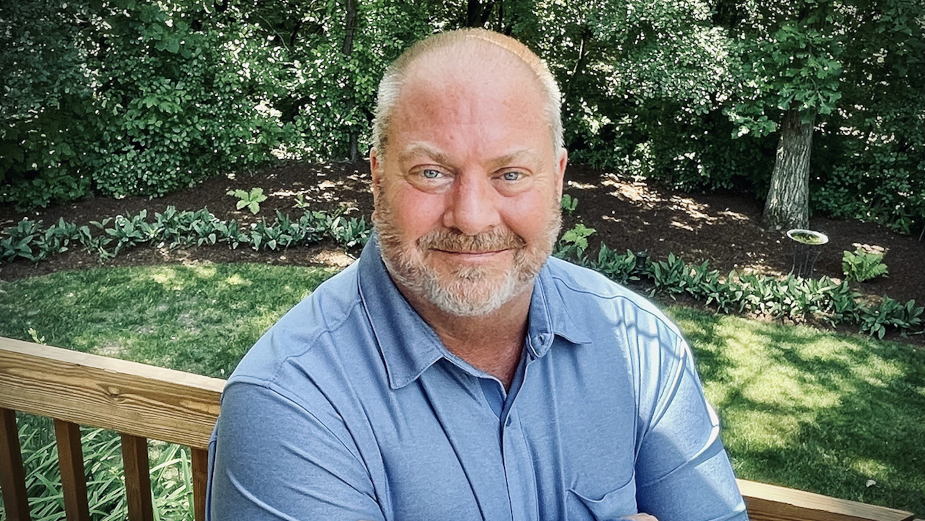
The Cutters Studios family, which includes hundreds of talents across partner companies Cutters, Dictionary Films, Flavor, and Another Country, are about to say goodbye to yet another legend: Longstanding Dictionary Films Managing Director Chris Rossiter is set to retire at month’s end.
A creative-industry titan who spent 25 years with Leo Burnett Chicago prior to joining Dictionary a decade ago, Rossiter’s internal announcement was filled with gratitude and high praise for his outstanding colleagues. Before he disappears into the sunset, the company’s leadership engaged him in this historic exit interview.
Q> After 25 years with Leo Burnett, from the position of EVP/Executive Director of Production, you joined Dictionary Films. What attracted you?
Chris> I started at Burnett at 22 as an officially titled 'junior producer.' A few of us quickly realised that meant 'almost professional,' and after some lobbying, our titles became associate producer. Less than 20 years later, I was running the department, having merged what had been four production departments across two agencies (Arc WW and LBC) into one. Seeing that everything we produced was either motion-based or still-based, and that implementation and delivery were the only real differences, combining the talents introduced a lot of efficiencies, helping us work faster, better manage tight schedules and budgets, and grow talent into new delivery models.
When it became time for a new challenge, I felt done with the agency side of production. Going a bit further on this, my passion was for helping bring creative ideas to life, and I had specific ideas about streamlining production and post to the benefit of everyone involved. That’s when Tim McGuire and Craig Duncan asked me to come aboard. In a nutshell, the vision they shared was helping Dictionary Films grow and contribute more toward Cutters Studios’ emergence as a collective powerhouse. I’d already known Tim and Chris Claeys for many years, and though Craig and I were pretty new to each other, we became close really fast.
From the very beginning, everything about what they wanted felt like what I wanted... and that’s still true today.
Q> After joining Dictionary, how long did it take for you to feel you’d made the right decision?
Chris> Two minutes. Simply the welcoming I got from people across the companies and the different offices.
Q> What Dictionary project is your single most favourite of all time, and why does it stand out?
Chris> Every project I did with Chris Hafner. I miss him every day.
Q> Is there a specific project you’d like to discuss in a bit of detail?
Chris> We were shooting a project for a liquor brand, a product shoot in a loft with some holiday decorations and extras, etc. Toward the end of our last shoot day, we heard a huge crash outside. A few of us ran to the scene and saw that an SUV had crashed and was flipped over on its side. As I helped one of the passengers to the curb, we were told there was a woman in the vehicle and she couldn’t get out. The hood was smoking and I watched as one of our crew vaulted in one leap up onto the top of the heap. He reached in and with one hand and in one move, pulled the driver out and got her to safety, unhurt. I’ve truly never seen someone move so fast and with such disregard for himself. Afterwards, he just went back to work on set. I marvel at it to this day. Amazing!
Q> Is there one or more career achievement that you will forever hold dear?
Chris> I’d like to think I had a hand in helping some people grow into and learn to grow within this business. I had great, great mentors at every step, and I hope I passed on some goodness to others.
Q> When you look over the Cutters Studios constellation today, what are you most proud of?
Chris> I think we really were a leader in truly combining top-drawer production with an absolute A-list of post-production services and talents as one cohesive company. A lot promised this feat prior to us, but they were really just creating strategic partnerships. A lot more actually provide it as one company now, but we pioneered this process from a multi-office, shared-service standpoint.
Q> What is something that most people don’t know about you or Dictionary?
Chris> How much it hurts when they don’t choose one of our directors for their projects. There’s immense pain every time.
Q> What advice would you pass along to the next generation?
Chris> The first was given to me, right from the start: Don’t be afraid to ask questions; nobody knows it all and pretending you know what you don’t is really dangerous.
The second is something I learned managing projects and people along the way: Don’t ask the same question over and over. Doing so might be a clue that either you don’t want to get better or perhaps aren’t a good fit for your job. In either case, you should find something else to do.
Last of all, and most importantly, be active in growing your experiences and the people you meet and work with. It’ll help your work, your soul, and the world.




